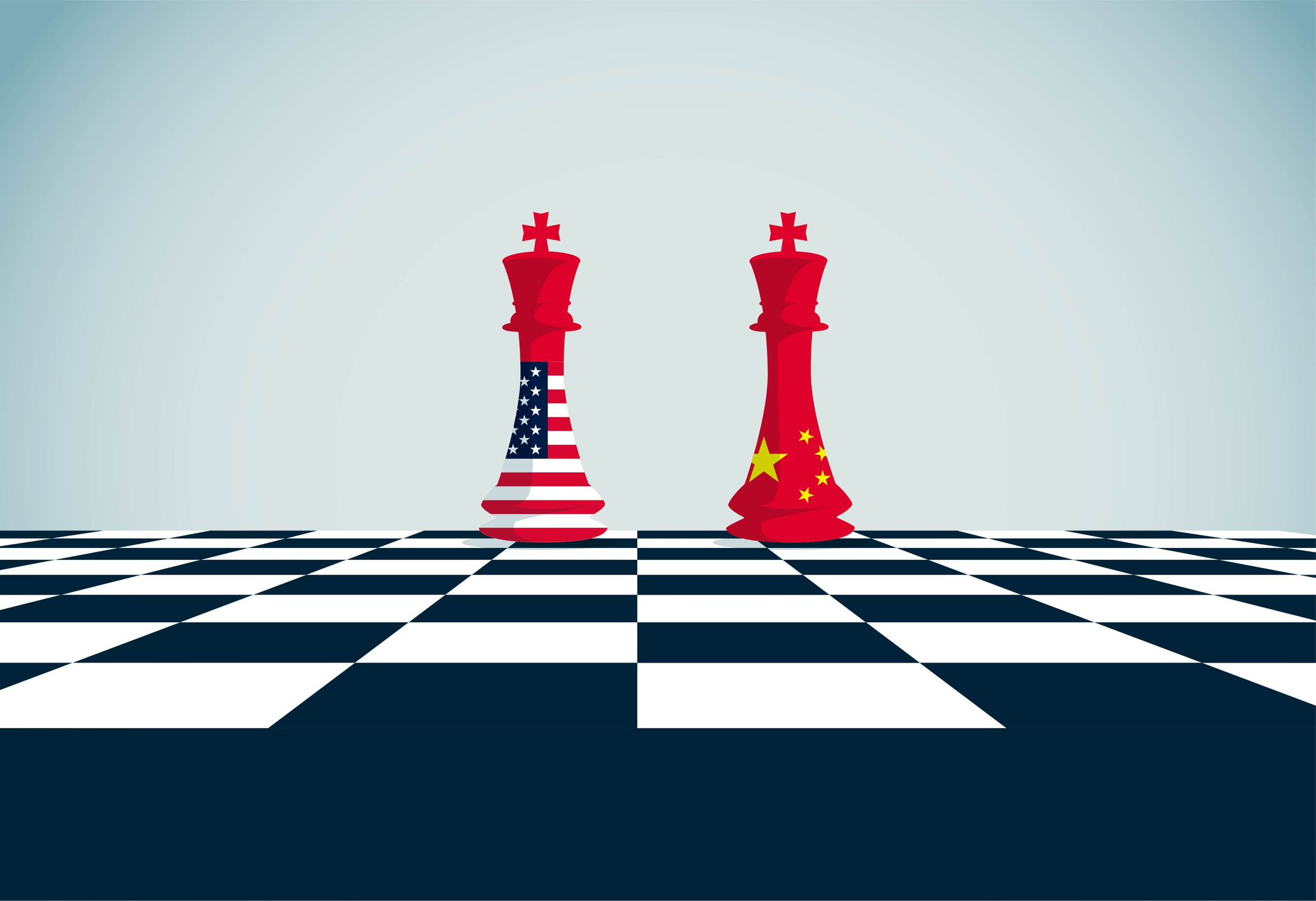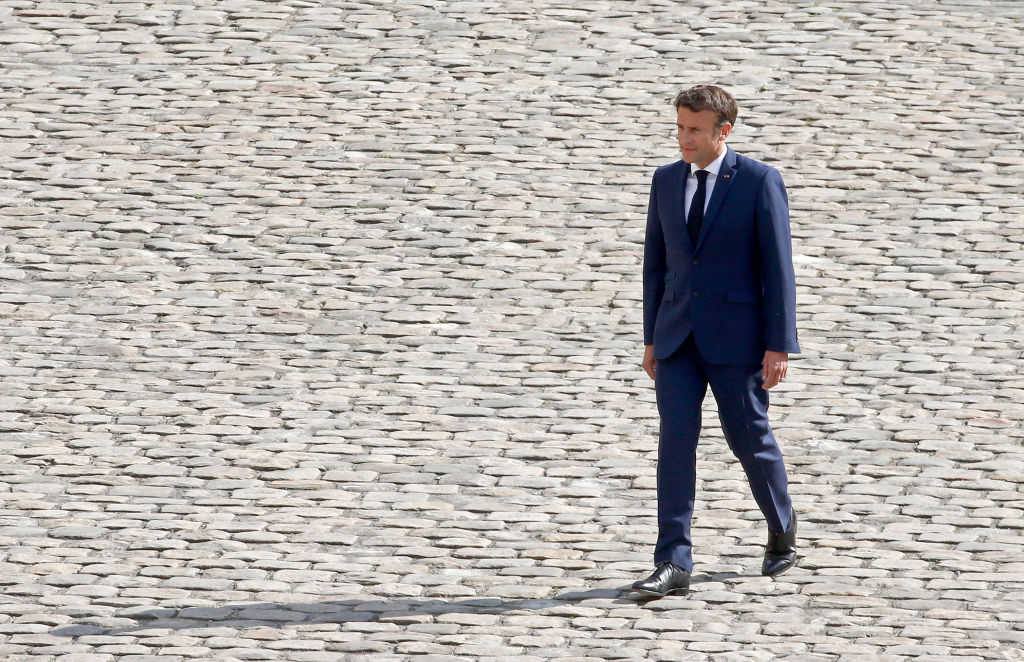NatCon London raises unavoidable questions.
The Coming War of Civilizations

America’s decline is not irreversible.
Media coverage of world events focuses on one crisis at a time, as if each was a separate phenomenon. But Ukraine, the Israel-Hamas war, the assaults on shipping in the Red Sea, China’s threats on Tawain, the closing of the Red Sea by Yemen’s Houthis, and even Venezuelan plans to conquer much of oil-rich Guyana are not separate events, but highly related.
All follow patterns laid out in Samuel Huntington’s 1986 book, The Clash of Civilizations and the Remaking of World Order which predicted the rise of “revanchist” powers seeking to recover perceived past glory. The most critical struggle will be with China, whose stated aim is to emerge as the leading global superpower by 2050. Yet China’s rise as a totalitarian surveillance state is just one part of the ascendency of autocrats who seek to topple the long-standing liberal capitalist order and replace it with something more feudal in nature, essentially a world dominated by absolute rulers and their satraps.
To be sure, each of these malefactors, including China, suffers significant weaknesses that could limit their ambitions and leave an opening for a strong Western response. Yet the West’s current power structure seems to lack the will, much less the way, to fight back. Attacks on innocent civilians, particularly in Europe, and assaults on American military bases and commercial shipping, not to mention the use of social media to undermine Western resolve—most evident with the rise of TikTok—are met with weak responses.
Realpolitik Trumps Moralism
The response to the Ukraine war epitomizes the shifting power dynamic. As the West, particularly the traditionally pacifist Left, has rallied with dollars and heightened emotions to the Ukrainian cause, the rest of the world, including rising economic powers like Vietnam, has showed little interest. Virtually no power outside the West has stood by the Ukrainians, except the democracies of East Asia, notably Japan and South Korea, which now have reason to think they too will be abandoned eventually by the West as well.
Many countries have benefited from the war as Russian resources, notably oil, flow to their economies at reduced rates. China uses Russia’s oil, and that of allied states like Iran, to build the world’s most formidable industrial economy. Seeking a way around sanctions on Russia, China uses its considerable financial leverage to develop an alternative credit card system and lead a growing movement away from dollar dominated commercial transactions to ones based on currencies such as the yuan.
The war seems to have increased the sentiment in many emerging countries to free themselves—not from tyranny, but Western domination. This can be seen clearly in the expansion of the BRICs group of developing countries, which extends to China and Russia to Iran, Venezuela, Brazil, Turkey, and, most importantly, India, itself increasingly a Hindutva autocracy. Many African countries, highly dependent on China and some with long standing ties to Russia, also have decided to ignore the West’s campaign for Ukraine.
All this follows the traditional script followed by emerging powers. The primary motivation is to achieve national greatness, particularly as it reflects despotic glory. This is not a repeat of the Cold War with its Manichean ideologies, but fundamentally opportunistic in nature. China seeks to control technology and trade to achieve global preeminence while Russia yearns to dominate its former imperial possessions. Venezuela wants to get its hands on oil to support its tottering socialist economy while other countries in Latin America seek more Chinese investment.
The Israel-Hamas war has further accelerated these trends. Given the geopolitical and economic shifts, it’s not surprising that Israel finds itself largely friendless, with increasingly conditional backing from the United States and even more flaccid support from Europe. Houthis attack Western shipping in the Red Sea with relative impunity, though seeming to leave China’s commercial fleet unscathed. This new pattern of alliances, as we see now in the Red Sea, may soon be evident in the jungles of northeastern South America, the Taiwan strait, and much of the South China Sea.
The Defenestration of the West
Rather than confront the reality of the global challenge, the West is throwing its moral and physical assets out the window. As in the 1930s, the West’s political elites seem more interested in diplomatic maneuvering than confronting a real and present danger. It is not too far from the bullseye to describe U.S. Secretary of State Antony Blinken, as Tablet recently did, as “Neville Chamberlain with an iPad.”
Power grows from the twin pillars of economic and military might, both of which the West has frittered away, largely to the benefit of China. Since the sixties, the U.S. and the E.U. have seen their share of value-added global manufacturing drop from 65 percent to barely half that today. China’s market share in manufactured exports is roughly equal to that of the U.S., Germany, and Japan combined while, despite much publicized efforts to “reshore” industry, American manufacturing has dropped recently to its lowest point since the pandemic.
Rather than a spur to greater production, the absurdly named Inflation Reduction Act seems more like the China Resuscitation Act. Even as China goes on a coal-plant building spree and emits more greenhouse gases than all developed countries put together, our “green policies,” notably the emphasis on solar panels and electric vehicles, consolidate the Middle Kingdom’s almost monopoly position on the EV battery supply chain. China controls 80 percent of the world’s raw material refining, 77 percent of the world’s cell capacity, and 60 percent of the world’s component manufacturing. China’s BYD already has passed recently Tesla as the world’s top EV maker.
The West’s military power is also fading. The humiliating retreat of the U.S. from Afghanistan clearly emboldened both China and Russia. Europe’s militaries are pathetic and getting more so. The U.K., with Europe’s strongest military, has only 150 tanks while Germany has enough ammunition for two days of battle. The U.S. is having trouble keeping its allies supplied without looking to other countries, like Japan and South Korea, to fill the gap.
Even more remarkable, many U.S. military goods now depend on components from China. Some advanced devices depend on critical minerals produced largely from China’s emerging vassal states in Africa as well as Latin America. Given the stress on our military resources already, some veteran commanders wonder if the U.S. Navy will be able to resist China’s oceanic expansion in the China Sea or its eventual move to take over Taiwan. China is already by far the world’s biggest producer of naval vessels and is rapidly catching up technologically with U.S. submarines and missile technology.
Faced with these challenges, financial and tech oligarchs either ignore or even embrace the Chinese ascendency. Wall Street remains a bulwark in support of China’s ambitions, as long as it remains a potential source of massive profits. Citigroup has even announced plans to start a China-based investment bank this year. At the recent APEC conference in San Francisco, which cleared away its encrusted homeless encampments in order to impress Xi, business magnates attended a $40,000 a plate dinner in his Imperial honor; the autocrat received a standing ovation.
Similarly, attempts to curtail China’s powerful TikTok, which exercises enormous influence on our younger generation, have been stymied by U.S. investors more concerned with protecting their estimated $8 billion investment than any implications for national security or subservience to China’s surveillance state. Meanwhile, most American apps are banned in the Middle Kingdom.
The West Needs a Heart—and a Brain—Transplant
There is nothing inevitable in the coming civilizational war. Autocratic states share the advantage of concentrating resources in a way difficult for nominal democracies. Certainly, dissenters in China, Russia, Iran, or Venezuela have failed to slow the trajectory of autocratic regimes.
But quiescence does not guarantee success. Both China and Russia face massive widespread alienation among their young people, particularly in China among the increasingly unemployed educated. They also face a rapid demographic decline faster than healthier Western countries like the U.S., Canada, and Australia. Meanwhile China’s once soaring IPO market is in a deep doldrum, much of it reaction to the country’s increasingly hostile climate for entrepreneurs.
In the past China could depend on Western investment to provide such jobs. But many Americans, Japanese, and Europeans are now leaving China in response to its mercantilist policies, rampant interference, as well as their own domestic pressure. Apple’s suppliers alone have pulled $16 billion out of the Middle Kingdom. At the same time Japan, Europe, and the U.K. are investing more in the U.S.
Rather than appease China, Russia, and Iran we might consider building our ties with allies like Japan and South Korea; opposing the Japanese purchase of U.S. Steel makes a lot less sense than if the purchaser was based in China. An enlightened nationalism does not equal blind xenophobia.
We also should seek to systematically undermine China’s growing hold on the developing world.
Despite common membership in the BRICs movement, countries like India and Vietnam do not want to become clients of Xi. We need to make clear to developing countries that allying with the West promises them a better economic future and more security. The idea of imposing carbon taxes on coal-fired Chinese imports is one thing; using the same approach on potential allies like India or poor Southeast Asian nations would be counterproductive.
The West should also take advantage of the presence of immigrants in their countries.
Many of these countries depend on remittances from economic migrants, which have grown from $200 billion to $600 billion since 2010, contributing mightily to their economies. The U.S. is by far the biggest source of remittances in the world.
The Middle Eastern conflict also has some nuances. The key player behind the Hamas pogrom, Iran, is deeply feared by Sunni-majority states like Saudi Arabia and Egypt, who are more threatened by Tehran than Tel Aviv. At the same time, we should point out that China and Russia are secular states which persecute their Muslim minorities, an awkward reality for supposed allies.
Yet all these advantages will be squandered if the West, and particularly American youth, no longer believe in liberal democracy. Our elite institutions—notably academia and the mainstream media—increasingly dismiss the validity of our core institutions. Many young people in Europe and America have been primed, sometimes from grade school, to follow the essentially anti-Western “oppressor” and “colonialist” narrative. A recent report from the Future of Democracy at the University of Cambridge found support for democracy in the West falling most among 18-34 year olds.
This rot has even expanded to the Western defense establishment and intelligence services. The obsession of NATO and the U.S. military in fighting climate change and white nationalism is borderline insane at a time when there are growing concerns about their war-fighting ability, from the quality of troops to the deteriorated industrial base that supports them.
Ultimately the West needs to wake up from its torpor and start building things again. Rather than head towards a new civil war along ideological lines, we need a new sense of civic purpose that includes focusing on skills training, improving basic infrastructure, and expanding hard technology, notably in space. We also need to embrace, not stymie, the status of the United States as the world’s largest gas as well as a major oil exporter. This fundamentally weakens the leverage Iran, Venezuela, and Russia seek to exploit, particularly in Europe, South Asia, and South America.
This is not an utterly hopeless situation. There is growing support, on the Right and Left, for what analyst Aaron Renn calls “a populism that builds.” This can be seen in the economic populism of Senators J.D. Vance and Josh Hawley, as well as Democrat John Fetterman. But the challenge from China, Russia and their allies cannot be met with seminars extolling the theology of free markets any more than policies that focus more on “social justice,” “anti-racism,” and gender fluidity. The common goal should be to provide ordinary people in the West, whatever their ethnicity, the means to create wealth while supplying our military with the capacity needed to guard their interests.
The American Mind presents a range of perspectives. Views are writers’ own and do not necessarily represent those of The Claremont Institute.
The American Mind is a publication of the Claremont Institute, a non-profit 501(c)(3) organization, dedicated to restoring the principles of the American Founding to their rightful, preeminent authority in our national life. Interested in supporting our work? Gifts to the Claremont Institute are tax-deductible.
Ireland’s leaders are inviting disaster.
The West is overrun with migrants.
Italy’s new prime minister has steered a shrewd course.
Budapest’s populist conservatism may foreshadow a post-midterms recovery.
France deserves better than a politics of technocratic Europhilia.






